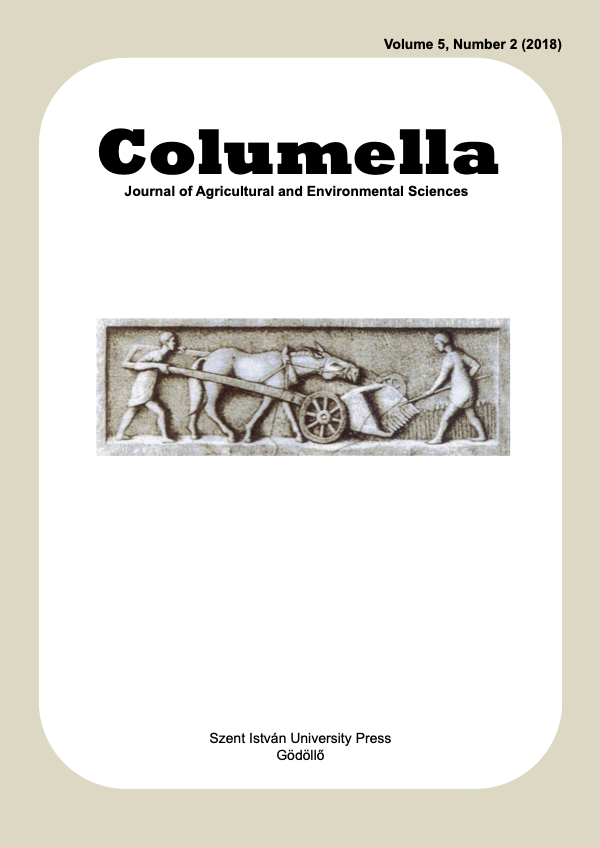In vitro activity of the cinnamon essential oil against the plant pathogen Septoria melissae desm.
DOI:
https://doi.org/10.18380/SZIE.COLUM.2018.5.2.15Keywords:
Septoria leafspot, lemon balm, growth inhibition, environmental friendly, medicinal plantsAbstract
Septoria leafspot caused by the mitosporic fungus Septoria melissae Desm. is the most significant disease of lemon balm (Melissa officinalis L.). The fungus frequently appears in the plantations and causes serious yield losses or decreases the quality of the drug. At present plant protection of lemon balm is inadequate due to the lack of authorised plant protection products. The essential oil of the cinnamon bark (CEO) has a strong antimicrobial activity proved by several in vitro experiments. Therefore the goal of our work was to test antifungal effect of the CEO against the pathogen Septoria melissae Desm.
In vitro tests were carried out with three concentrations (0.3%, 0.1%, 0.03%) of the CEO against a Hungarian and a Polish isolate of the fungus. Inhibition of the germination of the conidia as well as the mycelial radial growth was investigated. Supplementary tests were carried out with colonies of the fungi transferred to growth media without CEO after an incubation period of 14 and 35 days on media containing CEO.
Our results showed that all the applied concentrations of CEO have very strong (98.07-100%) inhibitory effect on the mycelial growth of both isolates. Germination of conidia was also blocked on each medium containing CEO. However, the effect of the CEO at 0.03% concentration was reversible. Mycelium began to grow again on media without CEO after transfer.
Based on the results, further investigation of CEO as a potential plant protection product in lemon balm crops is recommended.
Downloads
Published
Issue
Section
License
Copyright (c) 2018 Gergő Kovács, Éva Zámbori-Németh, Péter Radácsi, Géza Nagy

This work is licensed under a Creative Commons Attribution-NonCommercial-NoDerivatives 4.0 International License.






